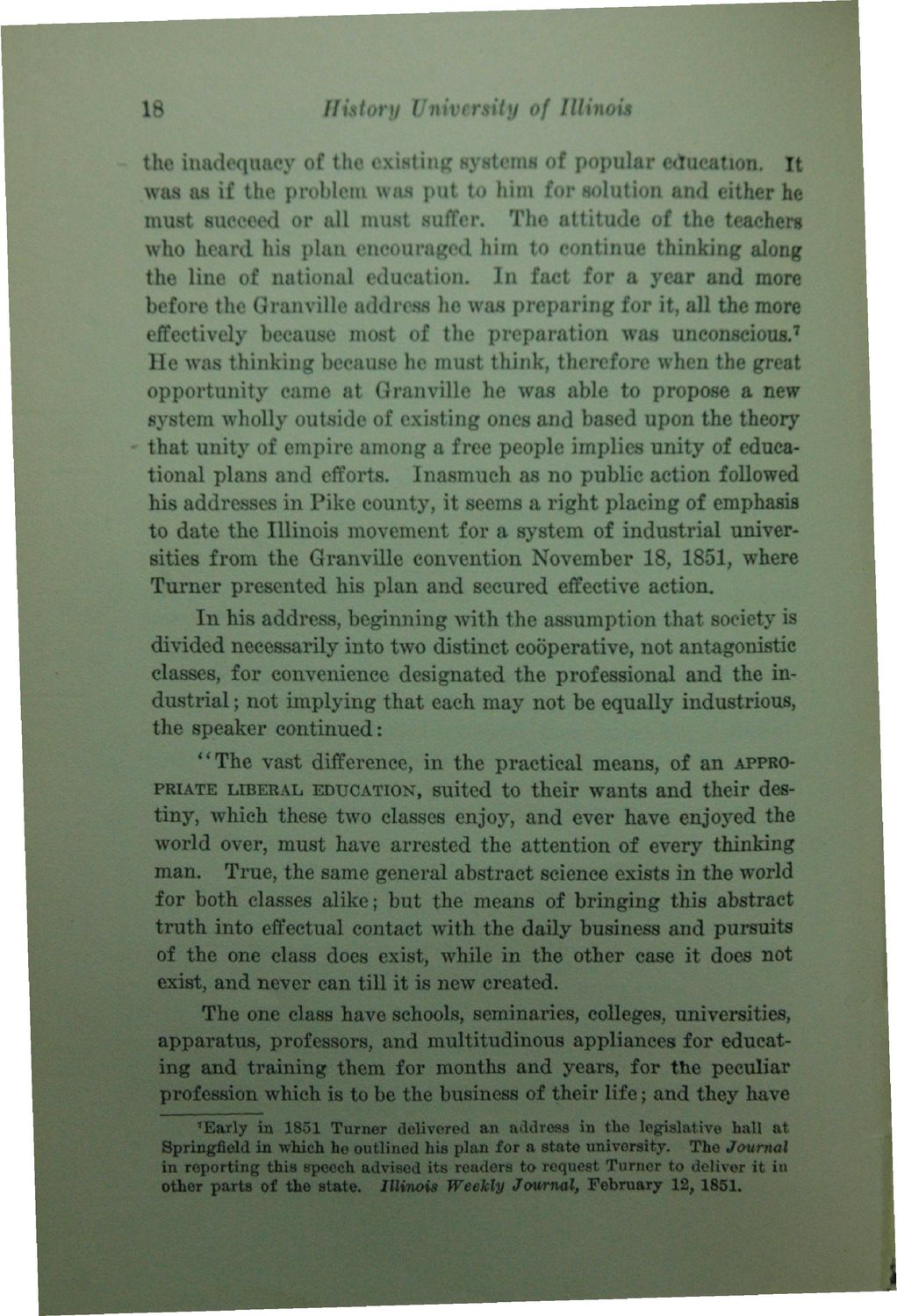| |
| |
Caption: Book - History of the University (Powell)
This is a reduced-resolution page image for fast online browsing.

EXTRACTED TEXT FROM PAGE:
18 History University of Illinois the inadequacy of the existing systems of popular education. It was as if the problem was put to him for eolation and either he must succeed or all must suffer. The attitude of the teachers who heard his plan encouraged him to continue thinking along the line of national education. I n fact for a year and more before the Granville address he was preparing for it, all the more effectively because most of the preparation was unconscious.7 He was thinking because he must think, therefore when the great opportunity came at Granville he was able to propose a new system wholly outside of existing ones and based upon the theory that unity of empire among a free people implies unity of educational plans and efforts. Inasmuch as no public action followed his addresses in Pike county, it seems a right placing of emphasis to date the Illinois movement for a system of industrial universities from the Granville convention November 18, 1851, where Turner presented his plan and secured effective action. In his address, beginning with the assumption that society is divided necessarily into two distinct cooperative, not antagonistic classes, for convenience designated the professional and the industrial ; not implying that each may not be equally industrious, the speaker continued: "The vast difference, in the practical means, of an APPROPRIATE LIBERAL EDUCATION, suited to their wants and their destiny, which these two classes enjoy, and ever have enjoyed the world over, must have arrested the attention of every thinking man. True, the same general abstract science exists in the world for both classes alike; but the means of bringing this abstract truth into effectual contact with the daily business and pursuits of the one class does exist, while in the other case it does not exist, and never can till it is new created. The one class have schools, seminaries, colleges, universities, apparatus, professors, and multitudinous appliances for educating and training them for months and years, for the peculiar profession which is to be the business of their life; and they have 'Early in 1851 Turner delivered an address in the legislative hall at Springfield in which he outlined his plan for a state university. The Journal in reporting this speech advised its readers to request Turner to deliver it in other parts of the state. Illinois Weekly Journal, February 12,1851,
| |